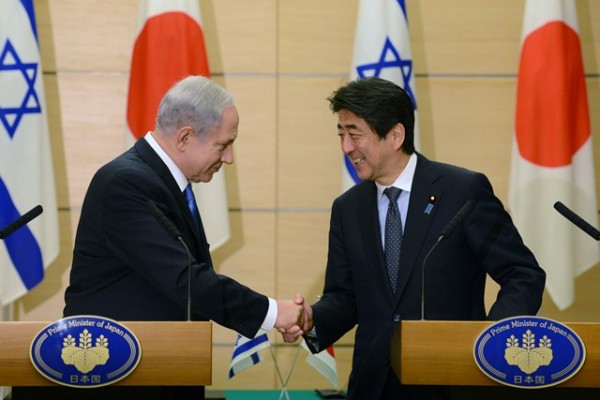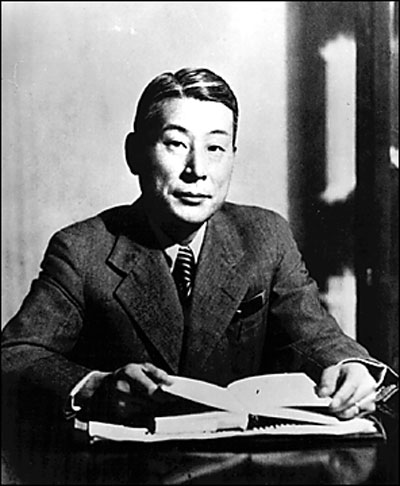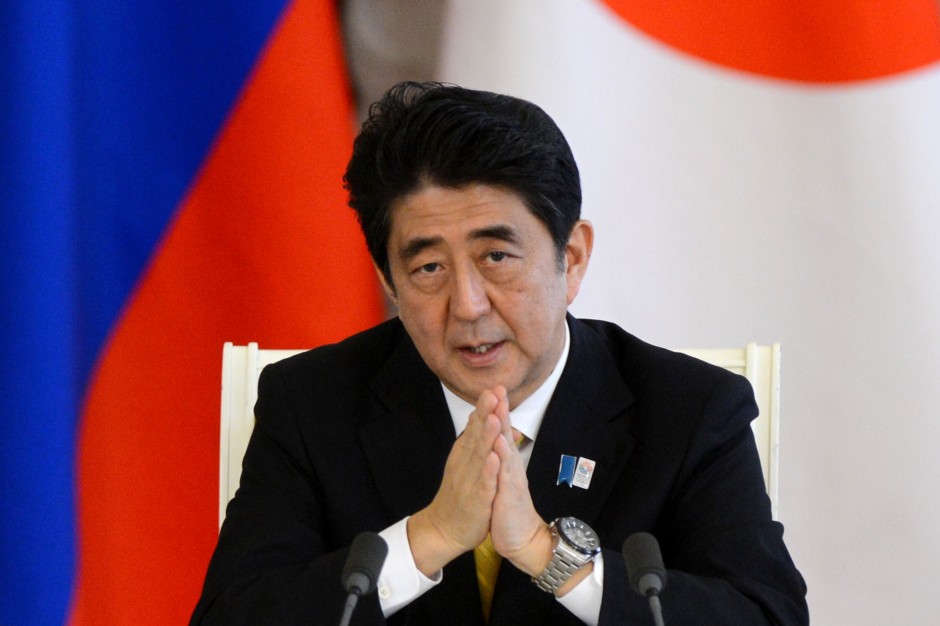Israel’s prime minister, Binyamin Netanyahu, recently wrapped up a five-day visit to Japan which focused on economic, diplomatic and security issues. He and Japan’s prime minister, Shinzo Abe, agreed, among other things, to upgrade defence cooperation and bolster economic ties.

It marked the first visit to Japan by an Israeli prime minister in more than six years, though it was Netanyahu’s second visit as prime minister, as he visited Japan during his first term in 1997 as prime minister. The last Japanese prime minister to visit Israel, Junichiro Koizumi, was there in 2006, and that trip was the first by a Japanese prime minister in more than a decade.
The lack of prime ministerial visits reflects the relative underdevelopment of Israel-Japan relations. Why this state of affairs, you may ask?
Well, for starters, great geographical distance, in conjunction with an absence of meaningful cultural or historical connections between the two nations, certainly helps explain the undeveloped state of the relationship. However, more than anything else, the Arab boycott of trade with Israel is the main reason.
Japan, until recently, was the industrialized nation that adhered most to the boycott because of its heavy dependence on Arab oil imports, which account for more than 80 percent of the country’s energy needs. As a result, Tokyo’s relations with Jerusalem were historically cool up until the 1990s. As a case-in-point, even though the two countries established diplomatic relations in 1952, it was not until 1988 that a senior Japanese official even dared visit Israel for fear of upsetting the Arabs.
Japan’s conspicuous observance of the Arab boycott has meant that other Asian states have developed more robust relations with Israel. For instance, both China and South Korea’s bilateral trade with Israel exceed that of Japan’s.
Nevertheless, a hopeful prospect in this underdeveloped relationship is that there is ample potential for growth and development, including raising awareness of the more noble episodes in Japanese-Jewish interactions.
A prime example of this is Chiune Sugihara, a World War II era Japanese diplomat posted in Lithuania who helped several thousand Jews leave that country, saving them from almost certain death in Nazi-occupied Europe.

And though Israel and Japan lack any historical or cultural direct links, they do share many similarities, which could bode well for potential future cooperation.
Economically and technologically, Israel and Japan are among the most advanced nations in the world, a point Netanyahu stressed on his visit. Moreover, politically, they are both free societies, sharing values in human rights, the rule of law and democracy.
As well, in the realm of international relations, both are essentially solitary states with few natural friends while having difficult relations with their immediate neighbours.
In the field of defence, both states depend on the United States as the guarantor of their security. And, in the post-war modern era, both countries were reborn, rising like phoenixes from the ashes of World War II and becoming wealthy states.
Even Netanyahu and Abe share many similarities. They both come from the right-wing of their respective national political spectrums. They are described as nationalists and hawks by Japan’s domestic media and the foreign press.
And, perhaps most importantly, both leaders believe their countries are faced with major security threats from neighbouring states. Netanyahu views Iran as an existential threat to Israel, while Abe sees China’s intentions towards Japan as sinister and North Korea’s capriciousness as extremely dangerous.
While these similarities may assist in facilitating a stronger bilateral relationship, obstacles remain in the way. On the Japanese side, for relations with Israel to grow, Japan’s relatively friendly ties with Iran will have to change. Tokyo may have to continue to reduce its import of Iranian oil and assure Jerusalem that it will not ease or lift its sanctions on Tehran.
Similarly, on the Israeli side, Israel will have to be more circumspect in its relations with China, particularly in the field military cooperation and arms sales.
Israel’s selling of cutting edge military technology and arms to China has long been a contentious point in its relations with the United States. Now, with Sino-Japanese tensions at their worst since World War II, Japan, also, will likely be very concerned with any Israeli effort to sell advanced weapons to China that could be used against it in any future conflict between the two Asian powers.
Israel-Japan relations have developed slowly, with both parties often ignoring the relationship. Given the state of international relations today, with America in relative decline while regional powers such as Iran and China are on the rise, it is impossible to predict how their relationship will develop.
Shared values could bring them together, though national interests could keep them apart.
Jordan Walker is a graduate of the University of Prince Edward Island’s Master of Arts in Island Studies program. He is currently writing a paper on the demarcation of modern Japan’s boundaries.

